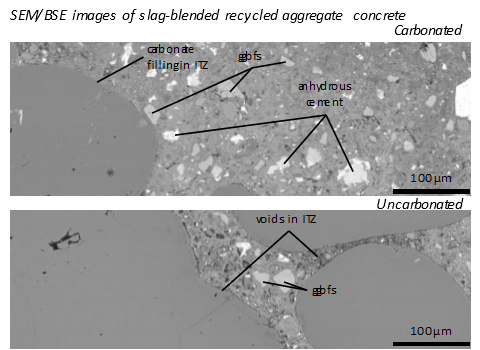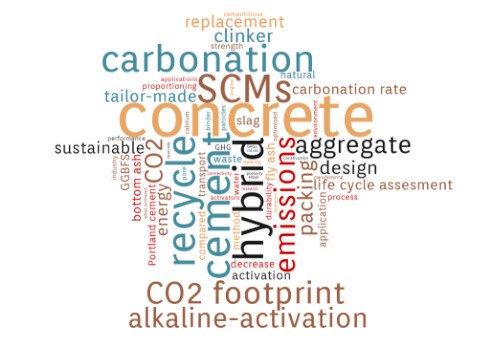Carbonation Tailoring of Eco-efficient Concrete with Hybrid Binders
Researchers involved:
- Yury Villagrán-Zaccardi
- Juan Manuel Etcheverry
- Philip Van den Heede
- Nele De Belie (supervisor)
Description:
Researchers and practitioners are continuously in the search for reducing the carbon footprint of concrete. Cementitious materials, included in EU emissions trading system sector, have been targeted by the EU Commission for a 43% cut by 2030 (compared to 2005), but the urgent effective solutions are still lacking. This project aims to achieve eco-efficiency of concrete by proving a novel combination of strategies that allow such a reduction for new concrete. The content of cement, the main contributor to the carbon footprint of concrete, will be reduced by using enhanced hybrid alkali-activated/hydraulic binders containing ground granulated blast furnace slag, fly ash, and other novel precursors. Moreover, recycled concrete aggregates will be used as a partial constituent of optimised granular skeletons, reducing the voids content and binder requirement. Finally, attention will be put on tailoring concrete to convenient carbonation rate, a frequently reported issue of concrete with a high volume of supplementary cementitious materials. For applications with reinforced concrete, high resistance against carbonation to prevent reinforcement corrosion will be targeted, whereas for non-reinforced concrete applications a high carbonation rate without affectation of strength will be achieved for fast CO2 uptake that partially compensates the emission of the material.


